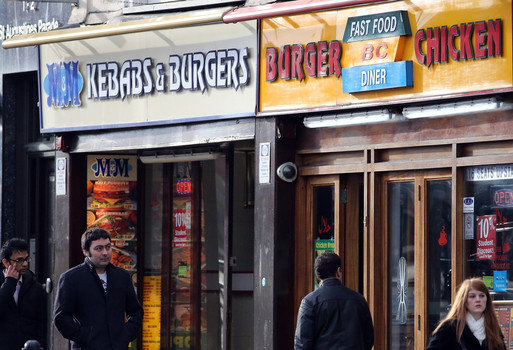The cost of healthy food has risen faster than the cost of unhealthy food in the United Kingdom. Nicholas R. V. Jones and colleagues from the University of Cambridge and the University of East Anglia are the first to consider cost over time as a factor in the growing rates of obesity in Britain.
The researchers collected data from the Department of Health’s National Diet and Nutrition Survey and the Consumer Price Index and correlated the changes in cost for 94 different food items between 2002 and 2012. The study found that the average increase in price for healthy food was 2.5 times the increase in price for foods that are considered not so healthy. The researchers consider this factor will become the driving force in food choice and make other factors that contribute to obesity to become minimal in comparison.
The rates of obesity in Britain are higher than the United States but the problem with the price of food is a common issue. The increase in the cost of healthy food will soon make the choice of healthy food impossible for people at the lower end of the economic spectrum and people on a fixed income like the growing number of baby boom retirees. Food banks in both Britain and the United States are closing in record numbers because the cost of food continues to increase and the food bank system is not sustainable.
The research is additional information that supports the idea that the obesity epidemic is a losing battle. Governments subsidize healthy food growers in many instances but the market determines a price that is beyond the means of a growing number of people. Obesity may be a forced way of life in the near future.








